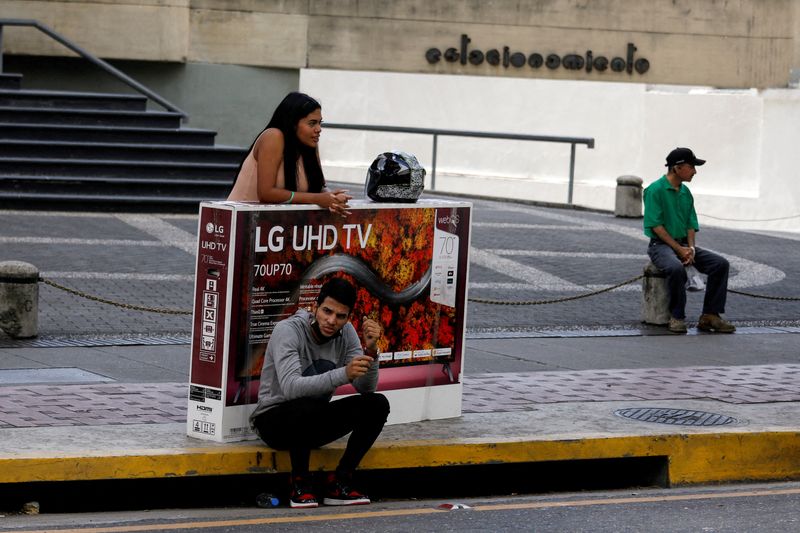By Mayela Armas
CARACAS (Reuters) - Some retailers in Venezuela are turning to old-fashioned layaway purchase offers to help customers buy everything from home appliances to shoes and motorcycles, as sky-high inflation and tight credit restrictions cut off other avenues for shopping.
Though the government of President Nicolas Maduro relaxed currency controls in 2019, leading to a slight recovery for the crisis-hit country, this year the highest price growth in Latin America, shrinking wages and falling consumption have again battered the economy.
Layaway, where customers pay an initial deposit to reserve a product and then pay the balance in installments, has become a strategy for businesses looking to increase sales, a dozen retailers, business guild presidents and analysts said.
Buy now, pay later (BNPL) services - a new twist on layaway - have become more common around the world for hard-pressed consumers, but in Venezuela severe credit restrictions and low wages have made them almost a necessity.
The government allows banks to lend only 27% of their total cashflow, rendering credit cards largely useless as prices balloon on annual inflation of more than 300%.
"The situation is difficult and before it was impossible to buy a motorcycle," said Ernesto Urdaneta, 39, who delivers medical supplies in western Maracaibo and four months ago bought a motorcycle on layaway.
Urdaneta, who also works in a pizzeria and earns $200 a month in total, sold his old car to get initial funds for the motorcycle, which cost about $900.
"With the bike I can make more deliveries to earn more and support my family," he said.
Customers usually pay an initial 40% to 50% of the price, though it can vary by retailer.
"There's always a risk, but clients leave some money, complete the payment and take their clothes," said Betsy Perez, who has been offering layaway for two months at her store in central Valencia to try and boost sales.
SHRINKING CONSUMER CREDIT
Credit cards were just 2.2%, about $13 million, of bank's total portfolios in Venezuela in March, the most recent month of data available from the Superintendency of Banks.
"Consumer credit has died in Venezuela," said Luis Vicente Leon, director of consulting firm Datanalisis, calling credit limits "ridiculous."
The Superintendency and the central bank did not respond to requests for comment.
BNPL schemes have allowed retailers to increase some sales, said Pedro Vallenilla, founder of Cashea, an app providing the service.
But despite signs offering layaway at stores across Venezuela and a variety of BNPL apps, commercial sales in the capital Caracas fell 4.8% between January and October, according to consultant Ecoanalitica.

"The economy needs consumption to be more dynamic," said Gustavo Valecillos, president of the Consecomercio retailers guild, adding layaway helps move inventory.
"A year later I could buy shoes. I paid half and the rest in two installments," said construction worker Juan Vegas as he left a shoe store in Caracas. "Before you could use a card."